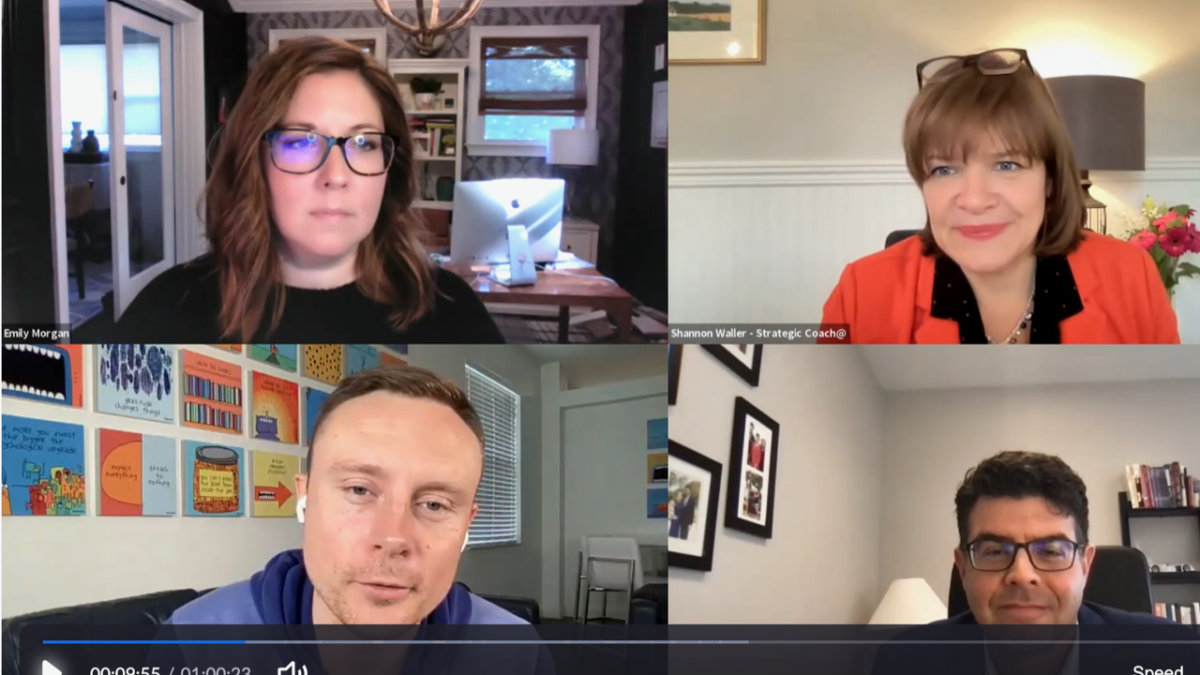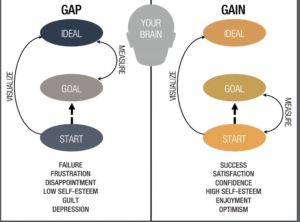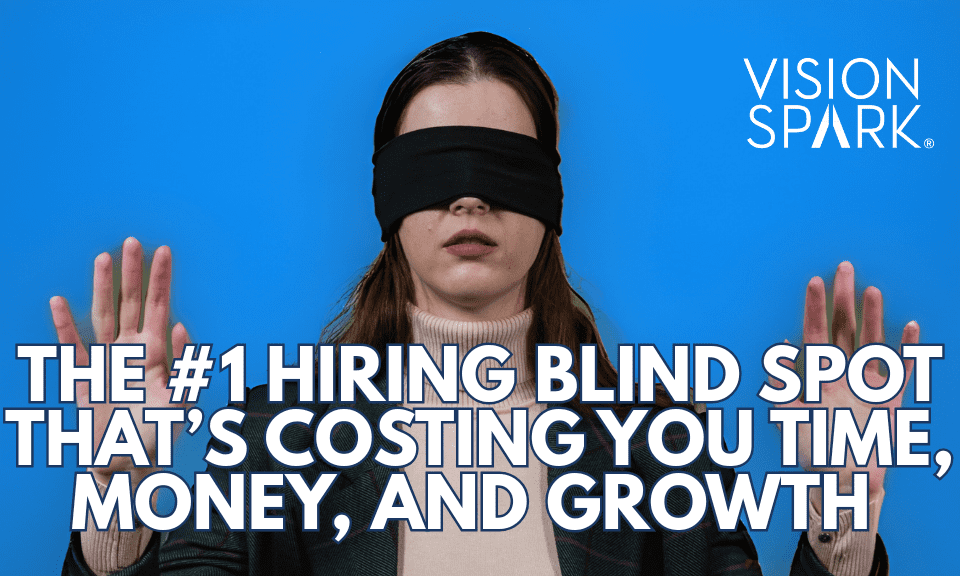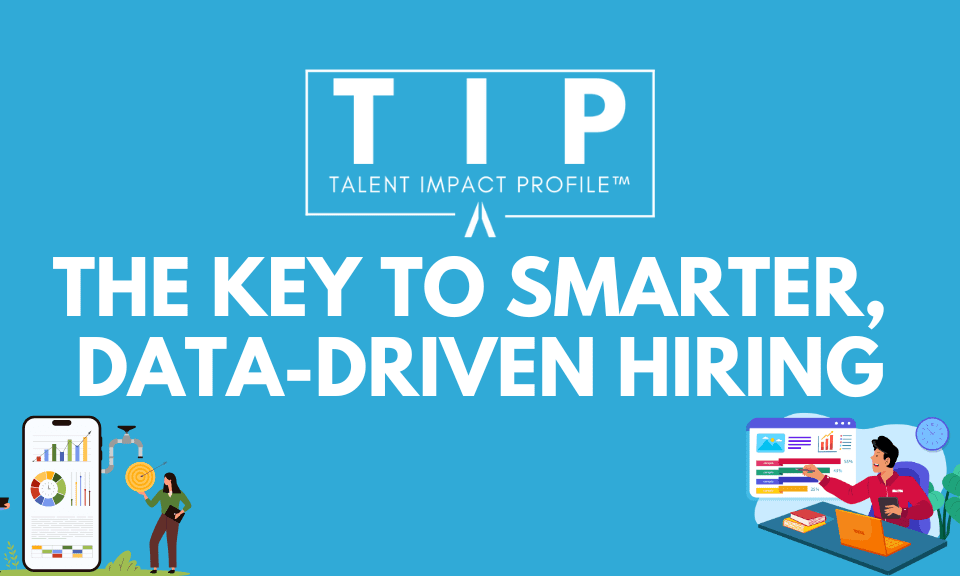
How to Hire Fractional Employees
November 17, 2021
Does Your Open Position Need an Introvert or an Extrovert? Here’s How to Find Out
January 6, 2022The quarterly Who Not How conversation between Shannon Waller of Strategic Coach, Emily Morgan of Delegate Solutions and Alec Broadfoot of VisionSpark, continued on October 28, 2021. But this time with a new twist and an additional guest: the trio welcomed Dr. Benjamin Hardy, co-author of the book, “The Gap and the Gain” as their featured speaker.
Dr. Hardy and Dan Sullivan wrote “The Gap and the Gain” last year. Dr. Hardy explained what the gap and the gain mean, and what it’s like to live in each one of them.
He explained that when you focus on measuring yourself or your situation against an ideal, you are in a gap mindset. You feel devalued, frustrated, disappointed, guilty, and depressed. You use words like could, would and should.
But when you shift your mindset and measure yourself or your situation against your goals, you are in a gain mindset. You are measuring progress, which contributes to feelings of success, satisfaction, confidence, and optimism.
Shannon compared ideals to a horizon – something you move toward but can never really reach because it moves farther away the closer you get. Striving for ideals plunges you into the gap. Many high achievers live in the gap, even if they seem happy and fulfilled to others.
Post Traumatic Growth
The gap and the gain concept can be applied to all situations, personal or professional. Dr. Hardy said that when you experience a traumatic event, such as a personal injury or any setback in business, living in the gap mindset makes you focus on how your current self is worse off than your former self.
A gain mindset encourages you to transform the traumatic experience into a gain, where you learn, grow and are grateful for the positive change the event brought. It’s the belief that because of the experience, your current self is further along than your former self. You squeeze every ounce of gain from the experience that you can.
The Gap and The Gain Mindset: How it Affects Company Culture
If you’re a manager who is in the gap with yourself, you’re going to see the gap in other people. You will be measuring your team members against where you think they should be, and not celebrating their progress. This leads to a toxic culture.
If you’re a manager who embraces the gain mindset, you make success possible for yourself and for your team. The gain mindset is important to attracting and retaining WHOs, and making them feel cared about, valued, and an integral part of your business’s success. A healthy culture results in happy employees, increased job satisfaction, more profit, and a better client experience.
How to Hire for a Gain Mindset
Alec explained that entrepreneurs who commit to being in the gain mindset retain talent. Your superstars will promote your business, attract talent just like them, and help you hire from a larger pool of superstars. This improves your ROI.
You can vet candidates for the gain mindset by asking key behavioral interview questions, like:
- “As a leader, how important is it for you to have a positive environment in your workplace?” If important, then ask, “What do you do to create and maintain a positive environment?”
- “Your team has just achieved a major goal. How do you feel about having a celebration?” If necessary, then ask, “Tell me about a time you celebrated with your team.”
Alec said that entrepreneurs can improve the gain mindset in their company by:
- Holding a Monday morning huddle, where your team shares one or two wins from the previous week
- Beginning every meeting with a positive focus, where your team talks about celebrations and good news, personal or professional
- Including the gain mindset as one of your Core Values
How the Gap and the Gain Affects Delegation
Emily explained that when entrepreneurs have a death grip on their work, attribute their value to how busy they are, and don’t want to delegate, they are living in the gap mindset.
Delegation is a tool to get you and your team out of the gap, because empowering your WHOs with responsibilities in their unique ability elevates them and your company. As an entrepreneur and visionary, you need to value your ideas more than the tasks you complete.
Give yourself permission to do those tasks that make an impact and elevate you when you do them. Delegate everything else. Not only will your business be more successful, but you will be happier living in the gain.
Want to watch the webinar in its entirety? Check it out here. And if you have any questions about hiring for the gain mindset or need help with any part of the hiring process, contact VisionSpark!





